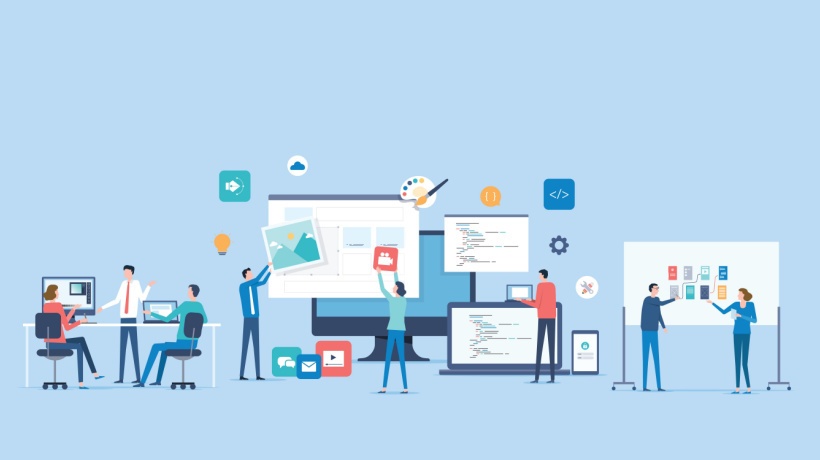Reskilling Corporate Learners: 7 Best Practices For eLearning Professionals
Reskilling involves developing new skills or competencies. Typically, these abilities allow corporate learners to take on new tasks or job responsibilities to further their careers. However, they can also reskill in their personal lives to explore new hobbies or interests. Reskilling can be a challenging feat, since it relies on flexibility and a willingness to change. Thankfully, there are 7 best practices to help you facilitate the process so that your corporate learners can build brand new skills.
1. Evaluate eLearning "Pain Points"
This involves carefully evaluating your current corporate eLearning strategy and identify its shortcomings. In some instances, you may find that your corporate eLearning courses are lacking specific skill sets, thereby hindering your success. For example, your corporate learners might need to build up selling skills to boost your profits. However, your corporate eLearning program doesn't include any corporate eLearning activities or online assessments for this essential skill. If you discover that certain traits or abilities have been left out, you can add them to your reskilling corporate eLearning strategy.
2. Identify Skill And Performance Gaps
In addition to eLearning pain points, your corporate learners may also have personal pain points in the form of performance gaps. Conduct pre-assessments and surveys to determine what they know and what they need to know to achieve their goals. This may involve learning new skills AND brushing up on skills that have deteriorated over time. For example, a corporate learner participated in customer service online training many years ago. Upon completion they accepted a new position in another department. Thus, they never applied those skills in the real world. Reskilling gives them the power to relearn customer service skills now to fulfill their current job duties.
3. Assess Corporate Learner Strengths
Many corporate learners aren't even aware that they possess certain skill sets or special abilities. However, these unique traits give them a head start when it's time to reskill. For instance, someone who is already familiar with creative writing can use this talent to build lateral thinking skills. It's all about repurposing existing abilities and thinking outside the box. Talents that have a common thread may be reskilled more effectively. Bear in mind that weaknesses may also be hiding from plain view. A corporate learner wants to pursue a particular skill. But do they need to work on other prerequisites first?
4. Use Branching Scenarios And Online Training Simulations
Branching scenarios, online training simulations, and serious games are powerful reskilling tools. They offer real world experience without any risk, which allows corporate learners to build essential skills more rapidly. Use realistic images, sounds, and situations to improve immersion and authenticity. Remember, the goal is to mimic real world challenges so that corporate learners can put the information into context. Thus, they'll be able to use the skills to overcome obstacles in their personal and professional lives. On a side note, online training simulations can also highlight learning strengths and areas for improvement. This is due to the fact that they require practical knowledge. Individuals must apply what they've learned in order to achieve the desired outcome. For example, by asking them to carry out a task that involves multiple steps or abilities. If they cannot complete the process, this might indicate that they lack the necessary skills.
5. Host Skill-Centered Webinars
Some skills require observation and modeling. Though online presentations can get the job done, they aren't as interactive as skill-centered webinars. These live virtual events are hosted on web conferencing platforms where corpoate learners can ask questions and share ideas. Before you host your first webinar, develop a general outline to keep the conversation on track. You should also integrate online training activities, quizzes, and multimedia to enrich the corporate eLearning experience. Additionally, recording your live events gives asynchronous learners the chance to "attend". It also serves as a valuable online training support resource, as corporate learners can brush up on skills anytime, anywhere.
6. Develop A Reskilling Mentorship Program
Think of skills as a commodity. Certain corporate learners possess valuable traits that they can pass on to their peers. In exchange, their peers offer experience and reciprocal skill building. Survey corporate learners to identify their current skills and those that they need to develop. Use the data to match mentors with mentees who share complementary skill sets. In addition, research their interests and personality traits to make the corporate eLearning experience more productive. As an example, corporate learners who enjoy the same hobby already have that in common. Thus, they can use that as a springboard. It's also crucial to find the right online platform for your mentorship online training program, such as web conferencing software or project management tools. This removes geographical limitations and opens the lines of communication.
7. Plan Ahead
Corporate learners may be aware of which skills they need today, but what about tomorrow? Certain skills require an extensive amount of online training experience. In fact, more involved or complex abilities may take years to build. This is why it's essential to conduct a successful skills assessment for your corporate audience and create a personalized skill development plan for the future. Develop a comprehensive overview of the skills they need, which corporate eLearning courses they should take, and the online resources that are available. There should also be a timeline in place that highlights every step of the process. Consider meeting with managers and conducting workplace observations before creating a reskilling plan.
Reskilling is often a matter of necessity in the corporate world. Employees must learn new skills or brush up on old skill sets to improve productivity in the workplace. Fortunately, you can use these 7 best practices to further the success of your organization and improve the competencies of your staff.
Cross-selling skills are often overlooked, but they can significantly increase your company’s profits. Read the article 6 Tips To Facilitate Cross-Selling Skills In Online Training to discover a few tips that can help you facilitate the cross-selling skills of your employees through an online training program.









